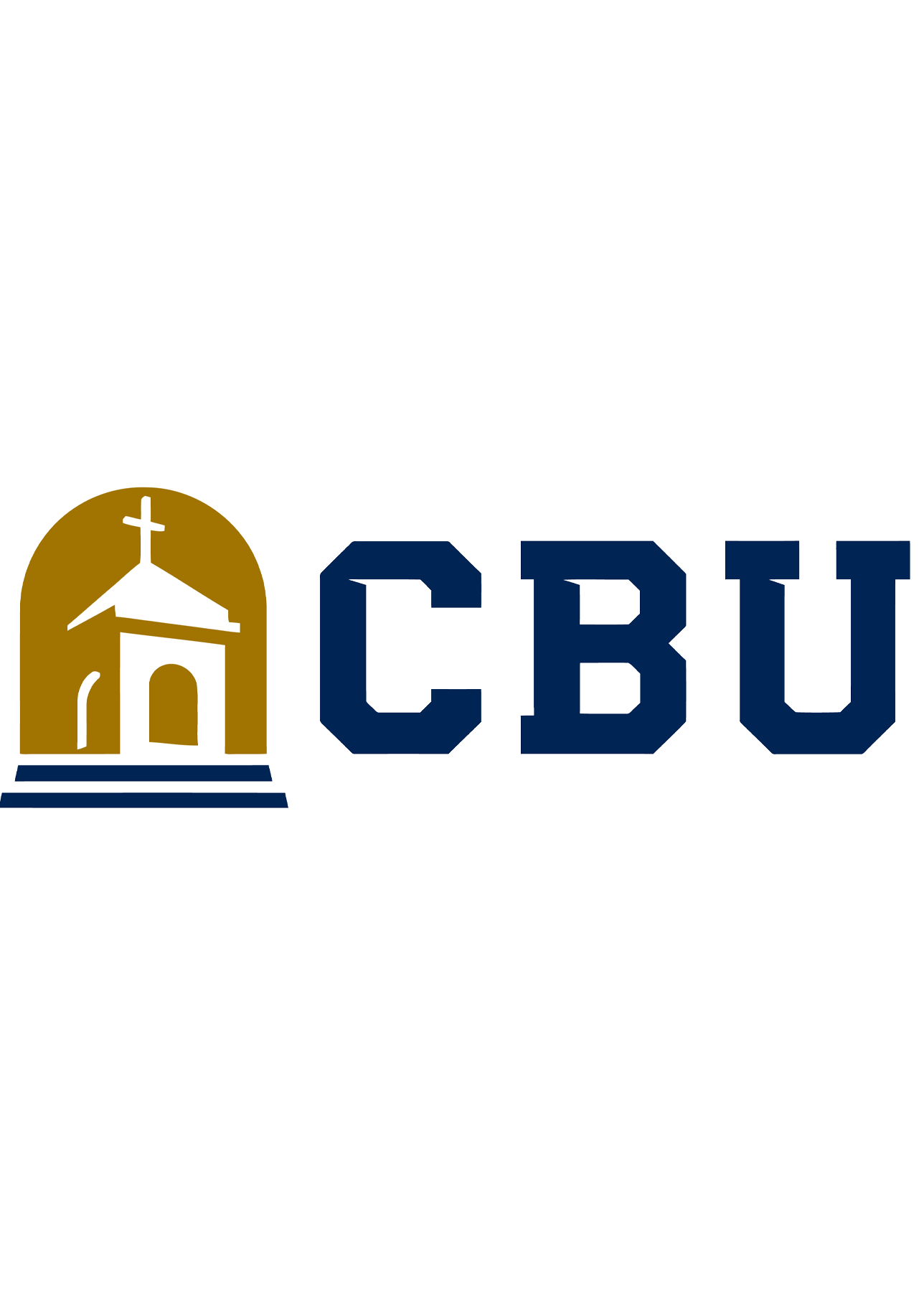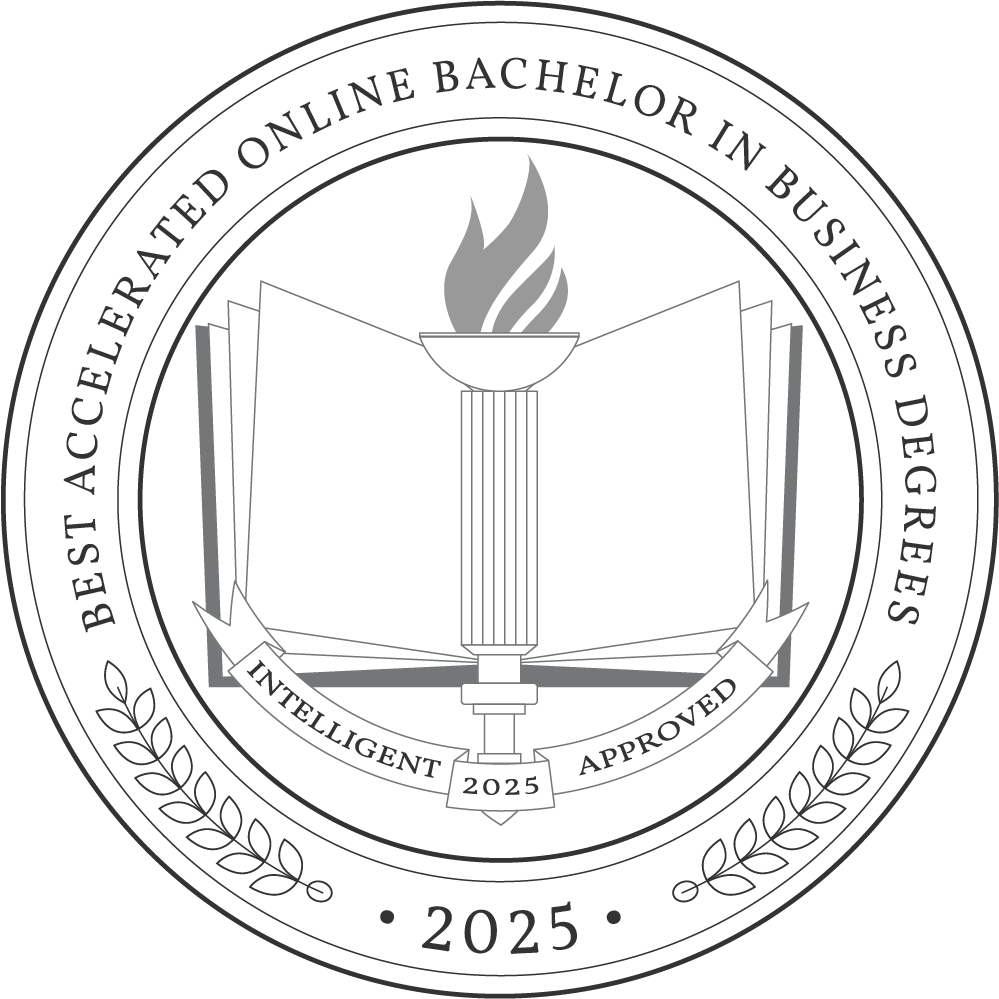For business-minded individuals aiming for higher salaries and increased job security, an accelerated online bachelor’s in business degree may be exactly what you need to achieve these goals. These programs offer accessibility and flexibility, making them ideal for working professionals or those with other responsibilities. Upon graduation, you’ll be eligible for careers as a human resources specialist, with a median salary of $67,650, or a market research analyst, with a median salary of $74,680. Other career opportunities may include jobs in finance, management, or sales.
Most accelerated programs can be completed in 18 months to three years, allowing you to kickstart your career quickly.
Why Trust Us
The Intelligent.com Higher Education Team is dedicated to providing students with independent, equitable school and program rankings and well-researched resources. Our expert-driven articles cover topics related to online colleges and programs, paying for school, and career outlooks. We use data from the U.S. Department of Education’s College Scorecard, the National Center for Education Statistics, and other reputable educational and professional organizations. Our academic advisory team reviews content and verifies accuracy throughout the year for the most current information. Partnerships do not influence rankings or editorial decisions.
- Analyzed over 2,000 national, accredited, and nonprofit colleges and universities
- 800+ rankings pages are reviewed and updated yearly
- Content is informed by reputable sources, surveys, and interviews with academic advisors and other experts
- Over 100 data points are reviewed for accuracy and quality throughout the year, including sources
How we rank schools
Our list features the best Online Business Degrees degree programs at top colleges nationwide. Each school featured is a nonprofit, accredited institution — either public or private — with a high standard of academic quality for post-secondary institutions.
We evaluated each school’s program on tuition costs, admission, retention and graduation rates, faculty, reputation, and the student resources provided for online students. We collected data from trusted sources like the National Center for Education Statistics, individual school and program websites, school admissions counselors, and other data sources. Then, we calculated the Intelligent Score on a scale of 0 to 100 based on the following criterion:
Academic Quality:
- Admission rate versus enrollment rate
- Retention rate of students who return after year one
- Accreditation status (regional and programmatic)
- Nonprofit status, both private and public institutions
Graduation Rate
- Overall graduation rate
- Total number of currently enrolled students, including diversity metrics
- Student-to-faculty ratio
Cost and ROI
- In-state and out-of-state per-credit tuition rates and fees
- Required credits to graduate
- Earning potential after graduation
- Availability of federal student loans, scholarships, and other financial aid options
Student Resources
- Available student services for online-only and hybrid programs
- On-campus amenities like tutoring centers and the number of libraries
Read more about our ranking methodology.
Best 16 Accredited Accelerated Online Bachelor’s in Business Programs
FiltersInstitution Type
Status
- Intelligent Score
- Alphabetically By University Name
- Acceptance Rate
- Enrollment
- In-state Graduate Tuition
- Out-of-state Graduate Tuition
- In-state Undergraduate Tuition
- Out-of-state Undergraduate Tuition

Kansas State University
Intelligent Score: 99.03In-state: $9,375
Out-of-state: $25,251
In-state: $10,212
Out-of-state: $10,212
SAT: N/A
ACT: N/A
$531
Online
Association to Advance Collegiate Schools of Business International
120

Buena Vista University
Intelligent Score: 98.79In-state: $36,426
Out-of-state: $36,426
In-state: $9,936
Out-of-state: $9,936
SAT: N/A
ACT: N/A
$465
Online
Higher Learning Commission
120

Bethel University
Intelligent Score: 97.63In-state: $38,870
Out-of-state: $38,870
In-state: $11,700
Out-of-state: $11,700
SAT: 1040-1338
ACT: 21-28
$450
Online
Accreditation Council for Business Schools and Programs
120-122

Regis University
Intelligent Score: 96.97In-state: $38,208
Out-of-state: $38,208
In-state: $14,322
Out-of-state: $14,322
SAT: 1000-1220
ACT: 21-28
$589
Online
Higher Learning Commission
120

DeSales University
Intelligent Score: 95.78In-state: $38,500
Out-of-state: $38,500
In-state: $20,520
Out-of-state: $20,520
SAT: 1010-1240
ACT: 22-28
$560
Online
Accreditation Council for Business Schools and Programs
120

Asbury University
Intelligent Score: 95.05In-state: $31,460
Out-of-state: $31,460
In-state: $9,990
Out-of-state: $9,990
SAT: 1080-1320
ACT: 21-28
$399
Online
Accreditation Council for Business Schools and Programs
124

Bushnell University
Intelligent Score: 95.03In-state: $47,000
Out-of-state: $47,000
In-state: $34,410
Out-of-state: $34,410
SAT: 920-1050
ACT: 17-18
$495
Online
International Accreditation Council for Business Education
120

University of Massachusetts – Lowell
Intelligent Score: 94.86In-state: $15,791
Out-of-state: $35,779
In-state: $14,014
Out-of-state: $14,014
SAT: 1200-1390
ACT: 27-32
$385
Online
Association to Advance Collegiate Schools of Business
120-122

Bellevue University
Intelligent Score: 94.81In-state: $7,176
Out-of-state: $7,176
In-state: $10,710
Out-of-state: $10,710
SAT: N/A
ACT: N/A
$449
Online
International Accreditation Council for Business Education
127

Saint Joseph’s College of Maine
Intelligent Score: 94.35In-state: $38,820
Out-of-state: $38,820
In-state: $9,482
Out-of-state: $9,482
SAT: 908-983
ACT: 20-24
$378
Online
New England Commission on Higher Education
120

Concordia University-Wisconsin
Intelligent Score: 93.37In-state: $32,660
Out-of-state: $32,660
In-state: $9,090
Out-of-state: $9,090
SAT: 990-1180
ACT: 19-25
$475
Online
International Accreditation Council for Business Education
120

University of Colorado – Colorado Springs
Intelligent Score: 90.88In-state: $10,728
Out-of-state: $34,930
In-state: $11,826
Out-of-state: $11,826
SAT: 1130-1350
ACT: 25-31
$686
Online
Association to Advance Collegiate Schools of Business
120

California Baptist University
Intelligent Score: 90.62In-state: $33,930
Out-of-state: $33,930
In-state: $13,410
Out-of-state: $13,410
SAT: 960-1150
ACT: 18-25
$520
Online
Association of Collegiate Business Schools and Programs
120

Arizona State University
Intelligent Score: 90.13In-state: $10,710
Out-of-state: $28,800
In-state: $11,720
Out-of-state: $11,720
SAT: 1100-1320
ACT: 21-28
$563
Online
Association to Advance Collegiate Schools of Business
120

Eastern Kentucky University
Intelligent Score: 90.05In-state: $9,266
Out-of-state: $19,338
In-state: $9,900
Out-of-state: $9,900
SAT: 950-1170
ACT: 19-25
$434
Online
Association to Advance Collegiate Schools of Business
120

Penn State World Campus
Intelligent Score: 87.21In-state: $30,046
Out-of-state: NA
In-state: $34,960
Out-of-state: $34,960
SAT: NA
ACT: NA
$626 - $671
Online
Association to Advance Collegiate Schools of Business
120
How to Choose an Accelerated Online Bachelor’s in Business Program
Choose your area of study
Business is a relatively versatile field, with many specializations that can prepare you for specific careers. By choosing an area of study early on, you’ll be well-prepared to enter the workforce post-graduation.
For example, creative students interested in consumer behavior and advertising may enjoy specializing in marketing, preparing for roles as market research analysts or brand strategists. Those with strong analytical skills may opt for a concentration in finance, leading to roles as financial analysts or investment bankers. Additionally, students who excel in interpersonal skills may thrive by specializing in human resources, preparing for positions as HR specialists.
Research schools and programs
Once you’ve chosen a specialization, you can focus on researching schools and programs. You may come into this process with a few questions of your own, but here are some more to guide your research further:
- Is the program accredited?
- How does the curriculum support my career goals?
- What’s the average time to completion?
- What support services are available for online learners?
- What’s the program’s reputation and graduate employment rate?
Most of this information will be readily available on program websites, but many students also benefit from speaking to an admissions counselor or attending a virtual open house.
Prepare for tests and applications
With your shortlist of potential schools in hand, you can begin preparing for tests and applications. Some schools may have specific requirements, but many share similar criteria – including:
- High school diploma or equivalent
- Transcripts from all previously attended institutions
- Letters of recommendation
- Personal statement or essay
Many programs require SAT or ACT scores. Enrolling in a test prep program can help boost these scores, increasing your chances of admission.
Select your program
When acceptance letters arrive, you may have a big decision to make. Revisit your initial research criteria and focus on what matters most to you — like program reputation, support services for online learners, and opportunities for internships or hands-on learning. Then, assess each school’s total cost of attendance and compare it to financial aid offers, potentially prioritizing any programs offering scholarships and grants.
Determine how you’ll pay for your degree
For many students, paying for their degree without a debt burden is a top priority. Start by filing the FAFSA to discover federal financial aid opportunities that may be available, like the Pell Grant, which can help offset costs. You should also consider applying for institutional and external scholarships, as this is another form of aid that doesn’t need to be repaid.
If you’re searching for part-time work, a work-study program might be the solution. These opportunities offer partial employment to help you finance your degree. For those currently employed, ask your employer if they provide tuition reimbursement.
While federal loans are often widely available, remember that they should be used sparingly – ideally only to bridge financial gaps – to minimize future debt.
What Can You Expect From an Accelerated Online Bachelor’s in Business Program?
An accelerated online bachelor’s in business degree offers a flexible and fast-paced route to earning your degree from anywhere in the world. Most coursework is available entirely online and covers business principles like management, marketing, finance, and economics, along with higher-level topics in business strategy, organizational behavior, and data analysis.
As a student, you’ll gain practical skills in leadership, decision-making, and problem-solving – which, in turn, will prepare you for various careers. Many programs include a capstone course, allowing you to apply your knowledge to real-world business projects that can be used post-graduation as a portfolio piece.
Most accelerated programs can be completed in as little as 18 months to three years, depending on your pace and prior credits.
Potential courses you’ll take in an accelerated online bachelor’s in business program
- Principles of Management: This foundational course introduces students to the fundamentals of managing organizations and cultivates organizational and leadership skills. Students will learn about leadership styles, strategic planning, and effective decision-making processes.
- Financial Accounting: In this course, learners will study preparing and interpreting financial statements. Key topics often include balance sheets, income statements, and cash flow analysis, equipping students with the skills to assess a business’s economic health.
- Marketing Strategies: This course covers essential marketing concepts, including market research, consumer behavior, and brand management. Participants will learn how to develop and implement effective marketing plans to drive business growth and customer engagement.
- Business Ethics: Typically considered an upper-level course, this class explores the ethical considerations and challenges faced in business. Topics may include corporate social responsibility, ethical decision-making, and the impact of business practices on society and the environment.
What Can I Do With a Bachelor’s in Business Degree?
A business degree will prepare you for various in-demand careers – many with salaries surpassing the national median.
Career outlook
- Market Research Analyst — This is an ideal role for creatives with a knack for storytelling. These professionals gather and analyze data on consumers, competitors, and market conditions to identify potential sales opportunities and evaluate the effectiveness of marketing strategies.
- Median annual salary: $74,680
- Projected employment growth (through 2032): 13%
- New jobs projected: 94,600
- Human Resources Specialist — A career in HR may appeal to outgoing individuals who are passionate about people. Graduates in this role manage the recruitment, screening, and onboarding of new employees, ensuring that the organization attracts and retains top talent.
- Median annual salary: $67,650
- Projected employment growth (through 2032): 6%
- New jobs projected: 78,700
- Financial Analyst — Natural number-crunchers may enjoy a career as a financial analyst. They evaluate financial data, prepare reports, and develop forecasts to guide investment decisions and assess the economic performance of companies.
- Median annual salary: $99,010
- Projected employment growth (through 2032): 8%
- New jobs projected: 27,400
Accelerated Online Bachelor’s in Business Degree Frequently Asked Questions
How do accelerated degree programs work?
Accelerated degree programs work by condensing the curriculum into a shorter timeframe, often offering the same classes in quicker, 8-week increments instead of the traditional 16-week semesters. This allows students to complete their degrees faster but typically requires a significant time commitment. To learn more about how these programs operate and to explore their pros and cons, visit our page, which details this further.
How long does it take to earn an accelerated online bachelor's in business degree?
Earning this degree on an accelerated timeline typically takes 18 months to three years compared to the traditional four-year timeline. Still, the exact duration can vary based on your course load and transfer credits. It’s also important to double-check total credit requirements, as these can vary by program and affect your anticipated graduation date.
How much does an online bachelor's in business degree cost?
The average cost of undergraduate tuition is $14,688 per year. Some accelerated programs may be less expensive overall due to their shorter timeline. Beyond tuition, you’ll also want to budget for technology fees, course materials, and textbooks, as these costs can add up over time and ultimately make your education more expensive.

